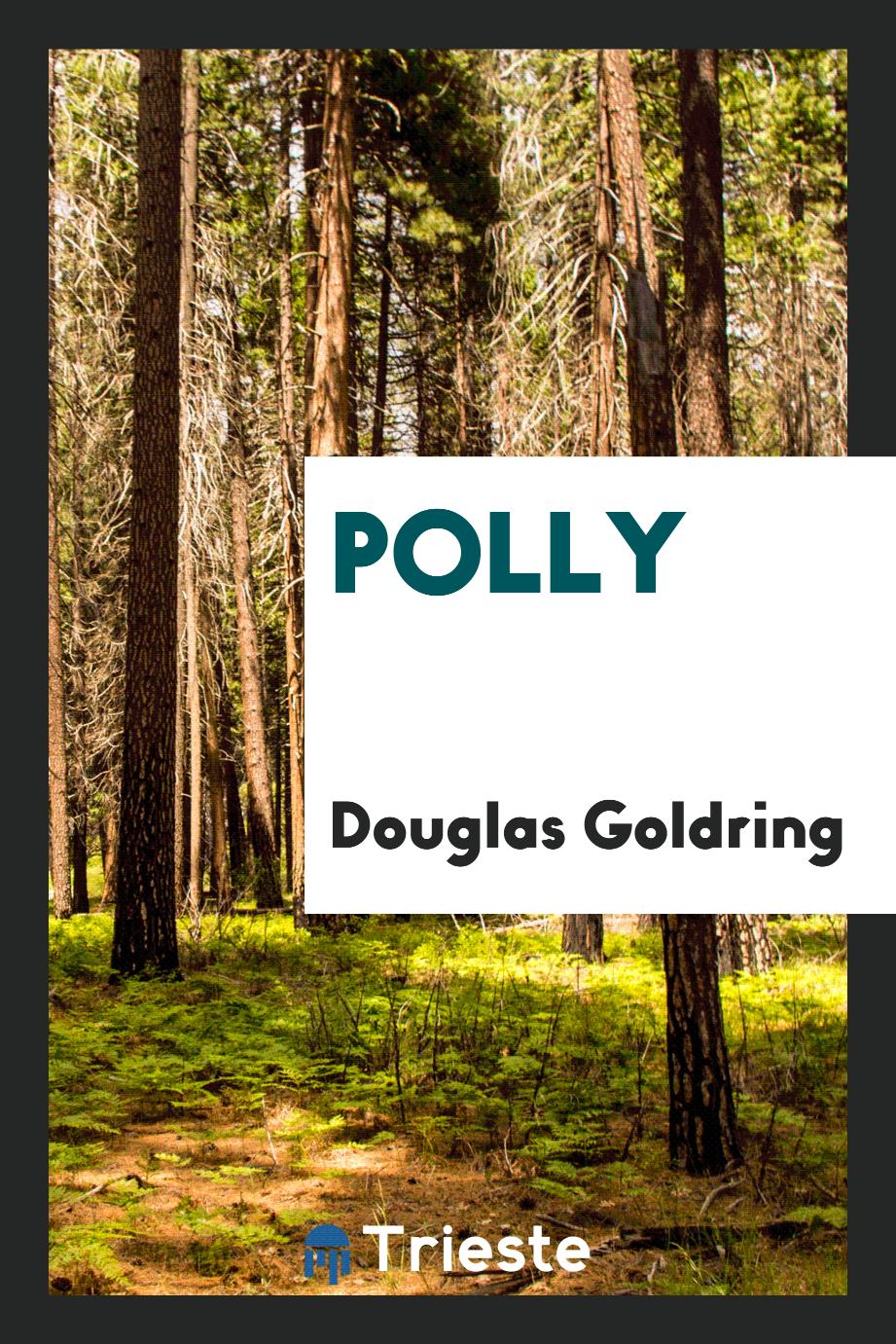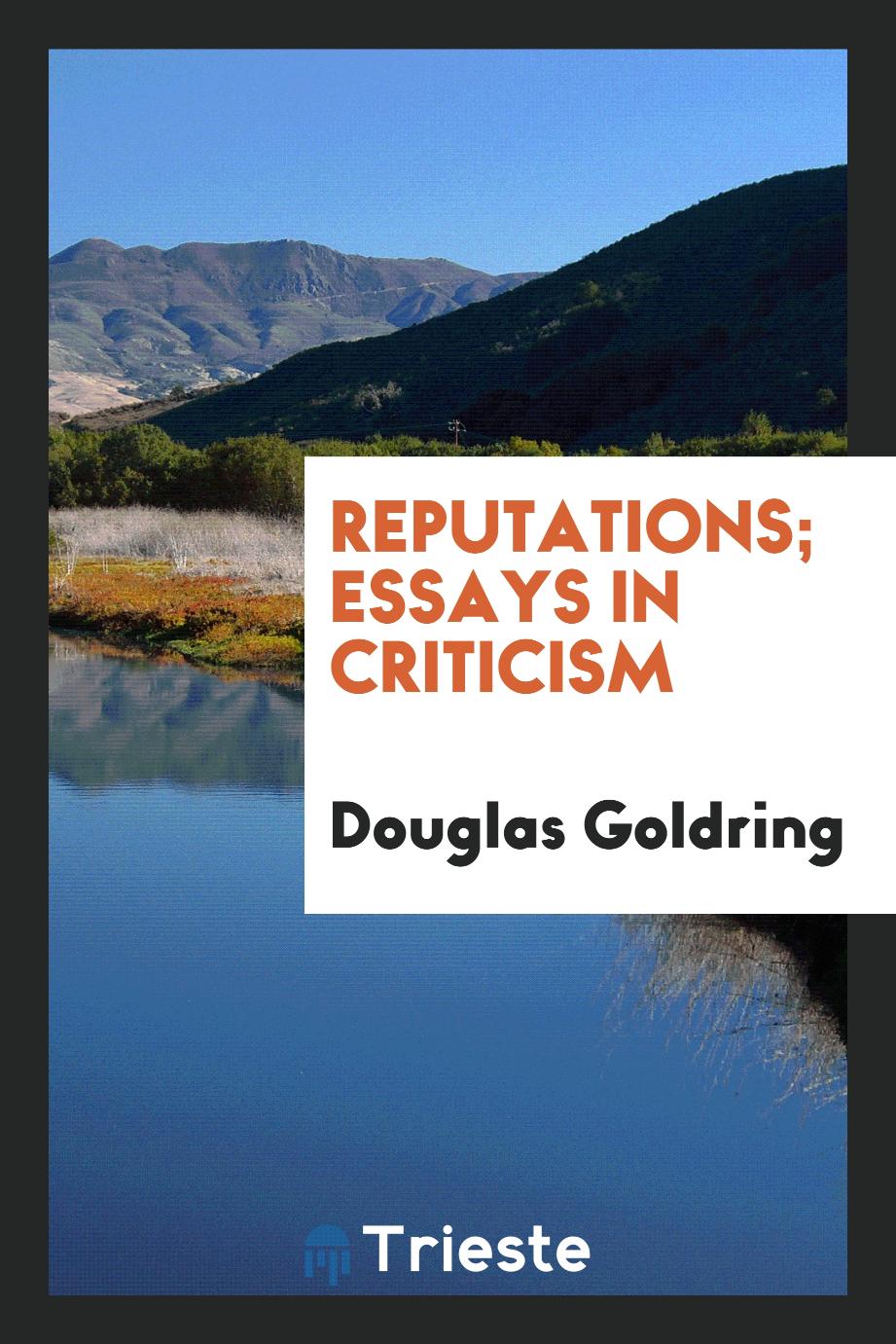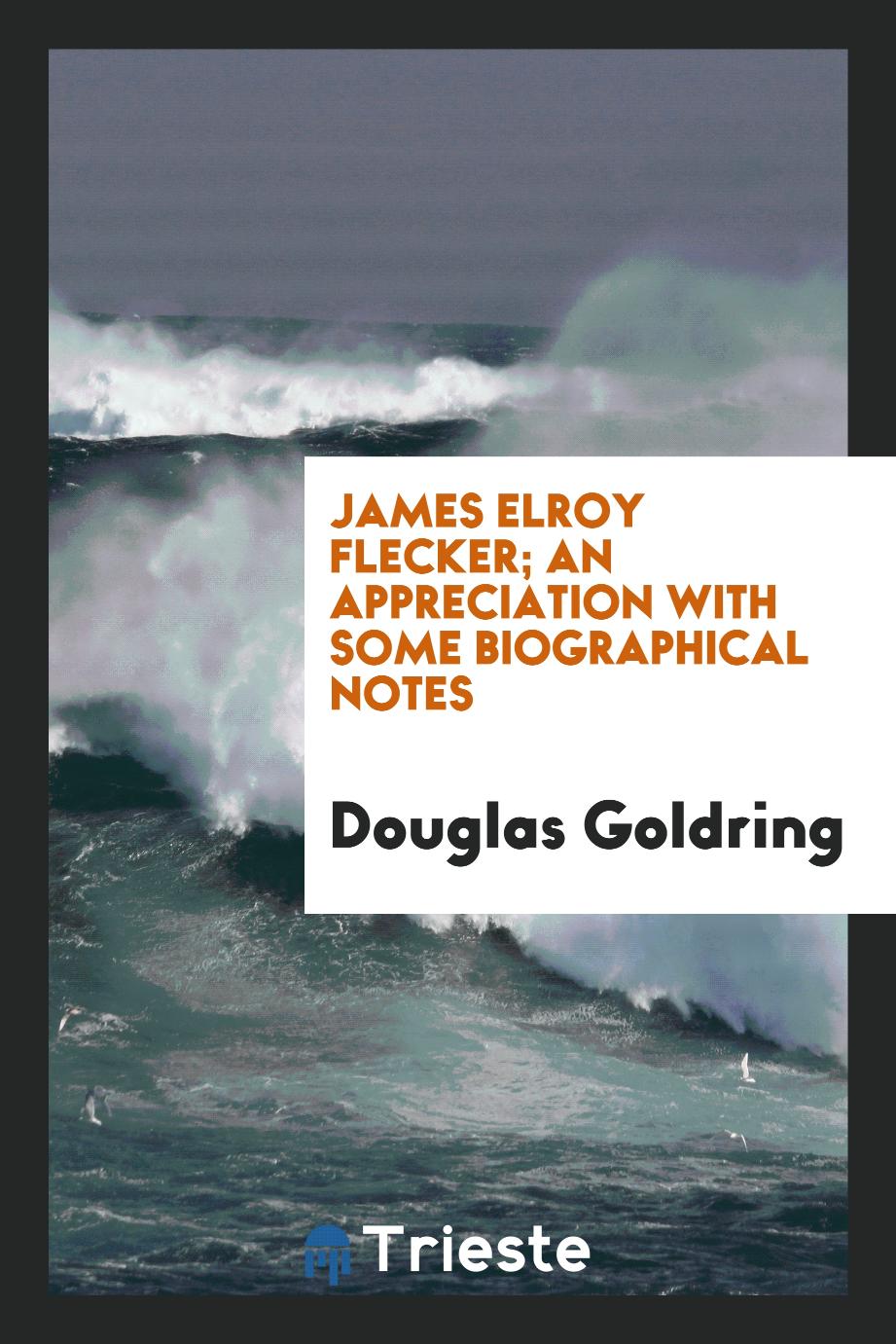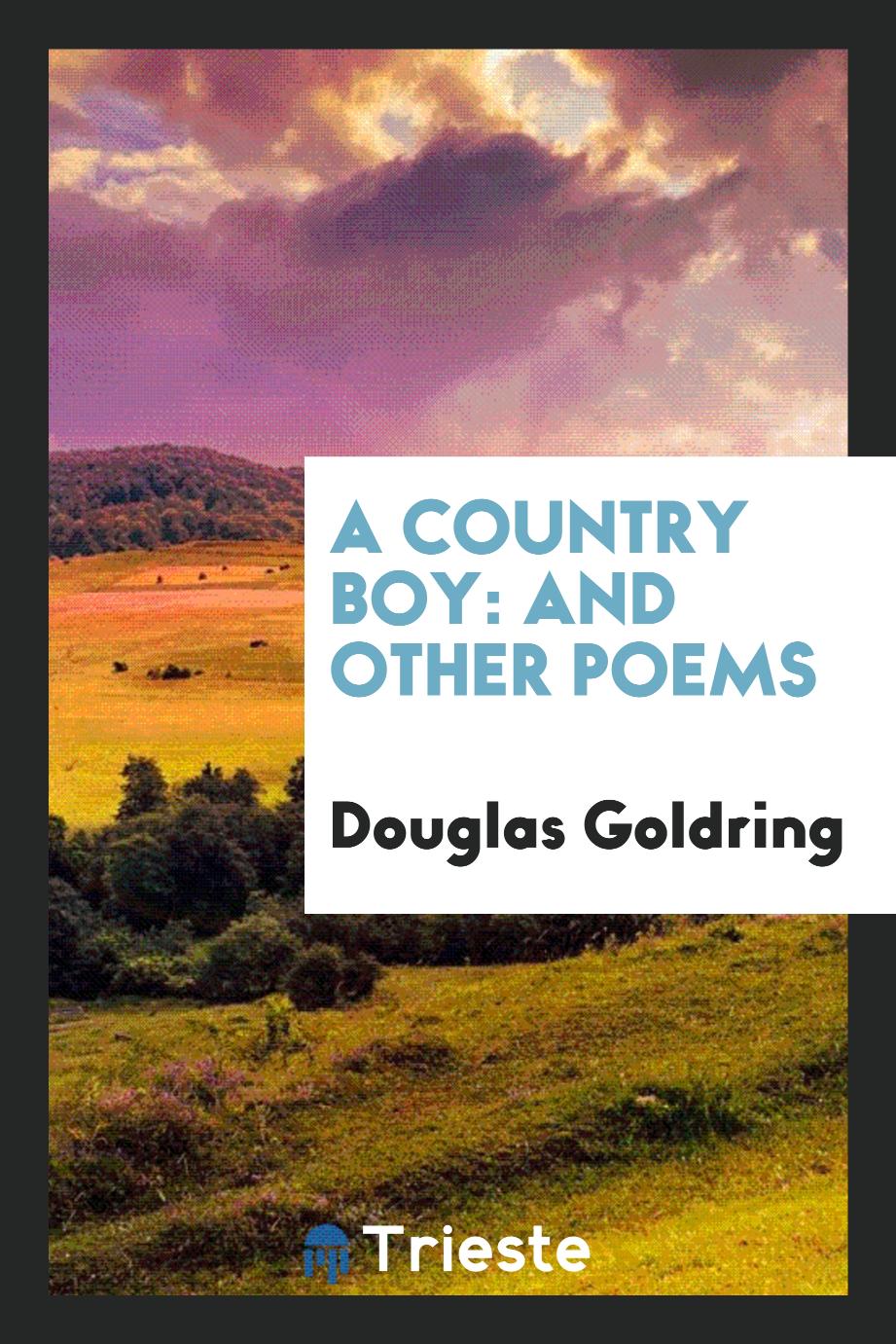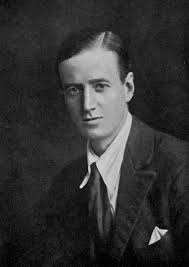
Douglas Goldring
Douglas Goldring (7 January 1887 - 9 April 1960) was an English writer and journalist. Goldring was born in Greenwich, England. He was educated initially at Hurstpierpoint, Magdalen College School and for his secondary education Felsted. He went on to Oxford in 1906; having inherited a legacy he left Oxford without a degree, and moved to London to write. He first took an editorial position at Country Life magazine. In 1908 he also became a sub-editor for English Review edited by Ford Madox Ford (at that time still named Hueffer). Goldring edited his own literary magazine, The Tramp, in 1910, publishing early work by Wyndham Lewis, and the Futurist Marinetti. From 1912 Goldring was associated with Max Goschen, a troubled London publisher. He there produced Ford's Collected Poems (1913), principally as a financial arrangement. In 1913 he was in close contact with Wyndham Lewis and the Vorticist group, helping to achieve publication of the literary magazine BLAST printed. Goldring volunteered for the British Army in 1914, at the outbreak of World War I, but was discharged for medical reasons. Subsequently, he took a more critical attitude towards the war, from a socialist position. He joined the 1917 Club, the mixed gender Bohemian radical equivalent of a "gentlemen's club", at 4 Gerrard Street, Soho; the name celebrated the Bolshevik revolution in Russia. He moved to Dublin, Ireland, and married there his first wife, Betty Duncan; they had two children (the elder, Hugh, was killed as a soldier in World War II). While in Dublin. Goldring witnessed the funeral of the Irish Republican activist Thomas Ashe, which he later wrote about in his book A Stranger In Ireland. Goldring was a member of the National Council for Civil Liberties. In 1919 Goldring visited Germany for Clarté, Henri Barbusse's organisation. On returning to London, he intended in 1919 to establish a People's Theatre Society and publish a series of dramas, including one, by D. H. Lawrence (Touch and Go),but in the end only getting his own Fight for Freedom into print. Lawrence was initially angered by this, but their friendship was soon restored. Goldring dedicated his 1920 novel The Black Curtain to Lawrence, and wrote an appreciation of Lawrence's work in his 1920 book Reputations. Douglas Goldring's archive is now in the special collections of the University of Victoria, Canada.
